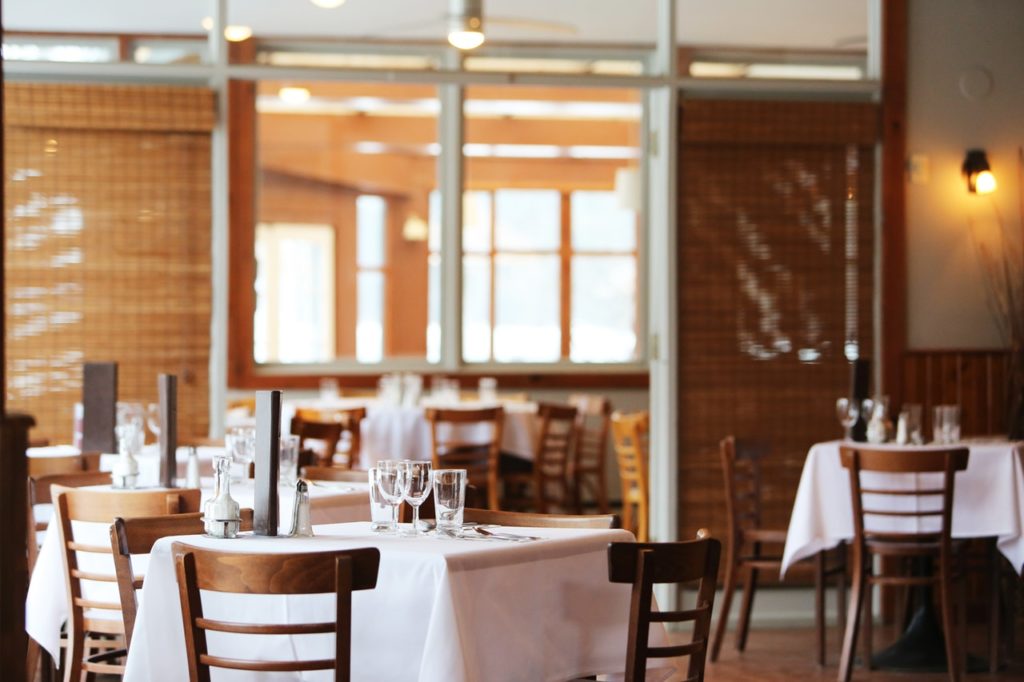From midnight tonight, all bars and restaurants in the country are to close until 3 April, under the government’s latest action plan to limit the spread of the coronavirus.
The measure will be “a catastrophe” for the food and drinks industry, according to Philippe Trinne, vice-president of Horeca Bruxelles, the sector’s professional federation.
“These are exceptional measures, extremely tough, but probably necessary faced with a worldwide pandemic,” he said. “The authorities have a lot of health data that we don’t have.”
The sector in all of Belgium employs some 186,000 people, including 60,000 business owners, and was already feeling the effects of the virus before the shutdown.
“Since Monday, 50-80% of restaurant reservations have been cancelled. Last week, the figure was between 30% and 50%.” The latest measures, he said, “are as if you stopped giving food to someone who was already hungry.”
The closure of restaurants and cafes will lead to financial losses, but also to a great deal of food waste, he said, as the measure comes into effect at midnight tonight, and much purchasing has already been done.
The sector is now calling for government aid to weather the effects of the shutdown.
The Flemish branch of the organisation is calling for a “horeca emergency fund” for the HOtel-REstaurant-CAfe industry. In addition, the organisation is calling for a suspension of all tourism, terrace and other taxes particular to the industry for the rest of the year, even after the emergency is over.
“Public health comes first, and people should not be allowed to die, but we also have to ensure that the horeca sector does not die out,” said Matthias De Caluwe, president of Horeca Vlaanderen.
“This is a financial blow to the sector’s heart. This is already a sector in crisis, and every 0.01% of margin counts. It is a collective responsibility to overcome this. These three weeks will follow us for a long time. The fall-out will be gigantic.”
Meanwhile federal home affairs minister Pieter De Crem (CD&V) pledged that the police services would enforce the closure, and called on the sense of responsibility of owners to ensure the measures have an effect.
“We don’t want to punish, we want to help,” he said. “The first control is self-control. We are calling for solidarity.”
The government is still discussing the details of enforcement, which should be announced later today.
“We will be issuing fines,” De Crem’s spokesperson said. “But we hope that sanctions can be held to an absolute minimum.”
UPDATE: The Flemish government this morning announced a series of measures of its own, including a fund of €100 million to help companies having trouble repaying debt as a result of the shutdown. Specifically for the horeca sector, economy minister announced a one-off payment of €4,000 for each business that has to close fully for the period -- bars and restaurants, essentially -- and €2,000 for those who have to close partially -- shops other than food shops.
The payment is similar to the compensation currently paid to businesses whose trade is affected by roadworks, although the sums involved are doubled. As Crevits explained, companies affected by roadworks have time to prepare for the inconvenience, whereas horeca businesses will suffer the shutdown almost immediately.
The procedure for applying for the compensation is the same as for roadworks. And should the shutdown last longer than the 21 days forecast, an additional per diem of €160 will be paid.
Alan Hope
The Brussels Times

